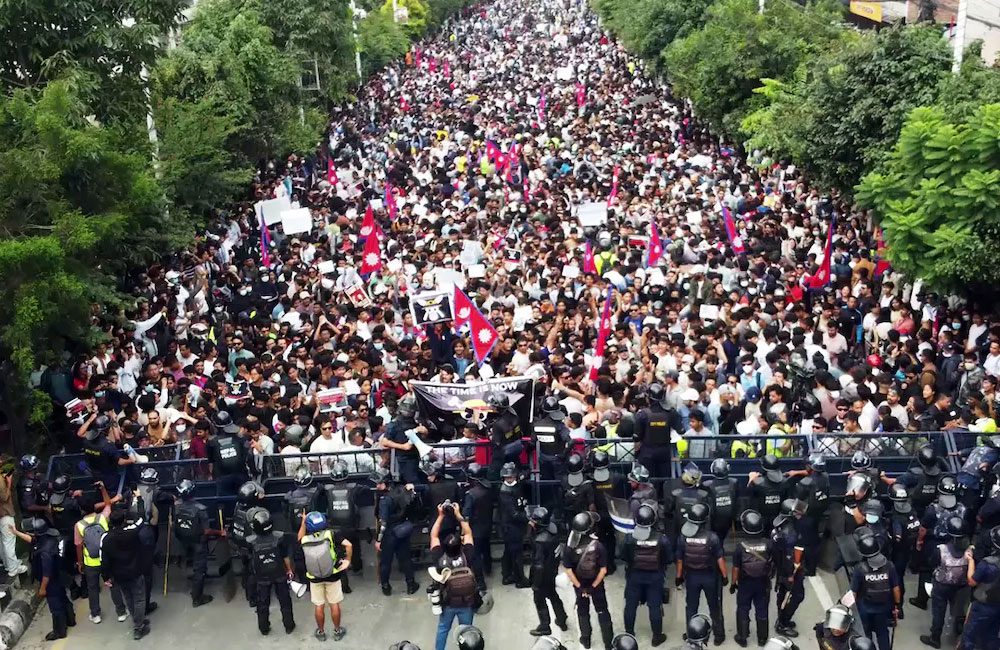Foreign media report that amid escalating protests, approximately 900 prisoners have escaped from two prisons in western Nepal.
Meanwhile, in response to the unrest, Nepal’s security forces, including the military, have been tasked with maintaining law and order. Following widespread protests that resulted in multiple fatalities, Nepal’s Prime Minister KP Sharma Oli resigned from his position.
During the protests, which continued despite the imposition of curfews, several high-profile locations were set on fire, including Prime Minister Oli’s residence, President Ram Chandra Poudel’s residence, the offices of the ruling Nepali Congress Party, and the homes of other political figures.
Subsequently, protesters also attempted to set fire to the Nepalese Parliament complex and the Supreme Court. Social media reports indicate that Finance Minister, former Prime Minister Sher Bahadur Deuba, and his wife, the current Foreign Minister, were reportedly attacked by demonstrators.
Other locations affected included the Singha Durbar building in Kathmandu, several hotels, media institutions, and the airport.
Amid the ongoing unrest, the Nepalese military has assumed control of governance in affected areas and has intervened to manage the violent activities. The military chief has appealed to the public to act calmly.
The military has also reported that certain groups have exploited the crisis to engage in looting, arson, property destruction, and even attempted sexual assaults.
The protests began primarily in response to the government’s decision to block 26 social media platforms in Nepal. A large portion of the demonstrators are young people from the new generation.
Following these unfortunate events, the Nepalese government restored access to all social media platforms. However, the protesters, expressing strong anger against the government, continued their demonstrations, contributing to the ongoing unrest.

Leave your comments
Login to post a comment
Post comment as a guest